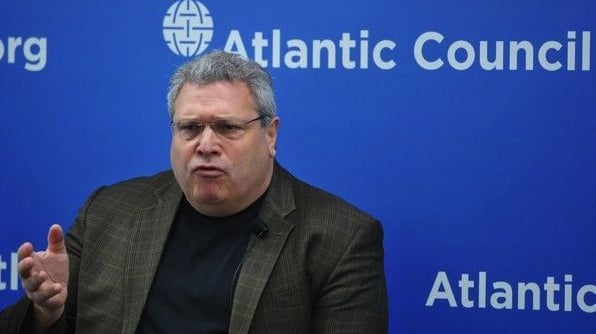Most consumers are unaware off the mainstream media’s dirty little secret. Think tanks are increasingly taking advantage of tight news budgets to influence the press agenda in favor of their sponsors.
Decades ago, these outfits generally operated as policy advisories. Although, some were comfortably enumerated ‘retirement homes’ for distinguished public servants or intellectuals. However, in modern times, they have become indistinguishable from lobbying firms. With the budgets to match.
On the Russia (and broader Eastern European) beat, think tank influence is becoming increasingly dangerous and malign. And it’s leading to a crisis in journalistic standards which nobody wants to acknowledge.
Two cases this week highlight the malaise.
Right now, Hungary and Ukraine are embroiled in a standoff regarding the rights of ethnic Hungarians in the latter country. The disagreement is entirely local, with roots in the 20th century carving-up of Budapest’s territory after it found itself on the losing side in both World Wars. As a result, lands were dispersed into other nations – former Czechoslovakia, Romania, Yugoslavia, and the Soviet Union.
There are tensions, to varying degrees, between Hungary and pretty much all the successor states housing its lost diaspora. Especially since nationalist Viktor Orban started handing out passports to compatriots stranded on foreign soil.
Until recently, most of the focus was on disagreements with Slovakia, but now attention has switched to Ukraine.
Let’s be clear. This is a mess of Kiev’s making. In a bid to appease “patriotic” fundamentalists, it began moves towards restrictive language laws, which has especially alienated the small band of Hungarian speakers on its western frontier.
Predictably, Budapest rushed in to defend its “people,” and now we have a nasty little imbroglio with headbangers on both sides entrenched.
One thing it’s not about is Russia. But Western media, egged on by think tank “experts,” keeps banging this drum. And here is a case in point this week.
The Los Angeles Times sent a correspondent to Uzhgorod, a Ukrainian border city. And rather than merely report from the ground, the writer spends a huge amount of the article referring to Russia and intimating that Orban is operating in lock-step with Moscow. Which is laughable to anybody who understands the Hungarian PM’s political methods. And which reeks of disinformation.
And who is used to “back up” these assertions? Only one Peter Kreko, “director of the Political Capital Institute, a Budapest think tank,” who is concerned Orban’s moves “help Russia hamper Ukraine’s Euro-Atlantic integration.”
Now, isn’t that a weird sort of thing for a Hungarian analyst to be worrying about? Well, it wouldn’t be if the LA Times were transparent and disclosed Kreko’s funding. You see, here’s who bankrolls the “Political Capital Institute, a Budapest think tank.”
Institute of Modern Russia (plaything of disgraced former 90’s oligarch and Putin opponent Mikhail Khodorkovsky)
National Endowment For Democracy (a US neoconservative outlet dedicated to “regime change” and promoting a pro-US outlook in Eastern Europe, whose chair has dubbed Ukraine “the big prize”)
Open Society (George Soros, who needs no introduction)
And here are some of the “most important international and domestic professional partners” of the Political Capital Institute:
Atlantic Council (NATO’s propaganda wing)
European Values (a Soros-funded Prague lobby group which smeared hundreds of European public figures as “useful idiots” for appearing on RT. Including Jeremy Corbyn and Stephen Fry).
German Marshall Fund of the United States (proprietors of the infamous ‘Hamilton 68’ dashboard)
Thus, the agendas at play are pretty clear here. Yet, the LA Times keeps its readers ignorant of Kreko’s paymasters. Which is especially interesting when you see RT, almost always, referred to as “the Kremlin-funded Russia Today,” or some version thereof, when described in Western media. And this is fine, because it’s true, but when the same rules don’t apply across the board, the bias is obvious.
The second case comes courtesy of “the Rupert Murdoch controlled Times of London” (see what I did there?) This week, it alleged around 75,000 Russians in London alone are Kremlin informants. All based on an “investigation” by the Henry Jackson Society (HJS), a neoconservative pressure group which seems to have successfully mounted a reverse takeover of the once venerable paper. With its leader writer, for instance, being a founding signatory of the concern.
Anyway, HJS, apparently based on a mere 16 interviews, with unnamed sources, concluded that “between a quarter and a half of Russian expats were, or have been informants.” And the Times splashed it.
However, it “clarified,” with comment from an anonymous “dissident,”how, in reality, “it was about half.” So, only the 32,500 odd ‘agents’ in London then. Which, if true, would means the walls of the Russian Embassy would have to be made from elastic to house the amount of handlers required to keep tabs on their information sources.
Look, it’s hardly a secret that standards at the Times are low. After all, the main foreign affairs columnist, Edward Lucas, is literally funded by US weapons manufacturers.
No, this is not a joke. Lucas is employed as a lobbyist at CEPA, a Washington and Warsaw-based outfit, which promotes the arms manufacturer’s agenda in Central and Eastern Europe. Namely, the likes of Raytheon, Lockheed Martin, FireEye, and Bell Helicopters.
Of course, The Times doesn’t make this conflict of interests clear to its readers. Another example of how the “think tank” tail is wagging the mainstream media dog these days.
Reprinted with permission from RT.


